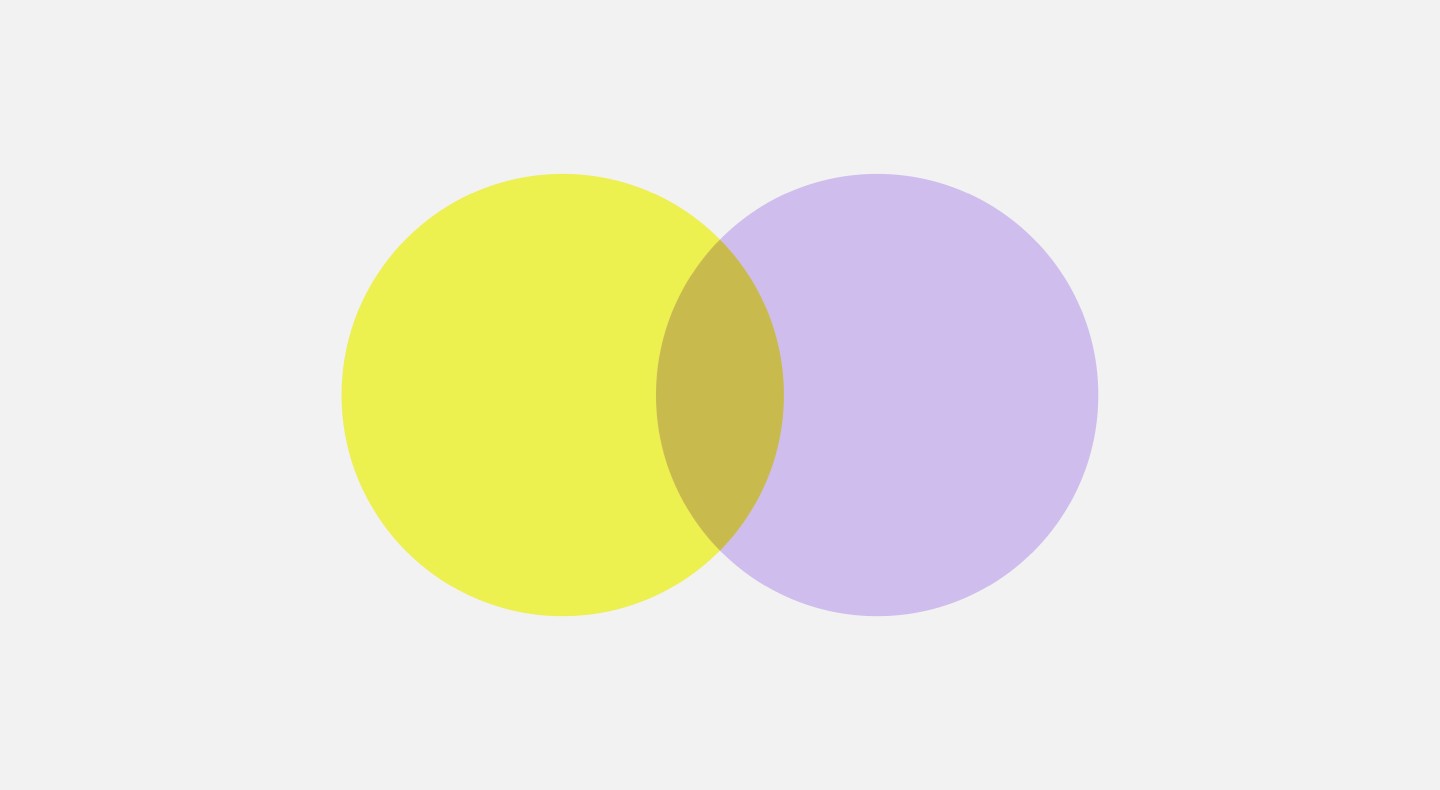
Building strategic partnerships
Co-branding is a strategic marketing or advertising partnership, generally between two non-competing brands. With household brands like Apple, Nike and Red Bull all getting in on the action, strategic co-branding partnerships can be incredibly effective in increasing your brand exposure and building your reputation.

An obvious choice
Some partnerships are an ‘obvious’ choice – take Easy Jet and Booking.com for example. When you visit the Easy Jet website, it feels authentic (and accessible!) to be able to view hotels and apartments from Booking.com.
This is not always the case, however, and doesn't have to be. There is no set rule on who should partner up or what a brand partnership should be. A brand partnership or collaboration can be anything from a product collaboration to an event, a competition, and more. Some of the most successful co-branding examples are brand collaborations you may only have considered once they came together as one.
All in all, when done successfully, co-branding and brand partnerships can be an effective brand strategy to increase awareness, break into new markets and build your brand.
Why is brand collaboration important?
When executed well, co-branding can be an extremely effective strategic marketing tool. There is always room for growth within a consumer-centric world and brands must take every opportunity to nurture and develop their existing customer base.
Collaboration allows brands to explore new avenues as they develop - through creating strategic partnerships, brands can mutually benefit from both customer bases whilst developing relationships with audiences that may not normally be accessible to them.
Strategic partnerships also allow brands to be innovative, through the pairing of two perspectives, they can produce something that pushes boundaries; commercially benefiting them both and more importantly creating something memorable for their customers.
In essence, a carefully crafted brand collaboration has the power to enhance your brand's reputation and create a memorable moment for your customers; all while adding to your brand’s personality and developing your customer base.
Looking for a partner for your next project?
Get in touch

What makes a good brand partnership?
Shared brand values
Whether these values cross in a way where the brands both aim to provide something similar e.g. cheap prices or luxurious quality – or both have the same beliefs or even simply ethics – this is what will establish the very core of the brand partnership.
Patagonia is a prime example, in their ongoing effort to tackle the climate crisis they have collaborated with various companies on a range of environmental conservation projects, staying true to their core brand values of building the best product while causing no unnecessary harm.
Similar targets, objectives and goals
Whilst brands may have differing business objectives, collaboration can still be effective if their desired outcomes somewhat align. A Starbucks and Spotify brand partnership still sees Starbucks wanting to sell coffee with Spotify wanting to sell music, however, both brands are aiming to build brand awareness and boost sales with similar targets, objectives and goals.
Complimentary skill sets and brand values that can offer mutual benefits
A brand partnership should be strategic and always offer you added value. Where some of your weaknesses may lie, your partnering brand should build you up or vice versa. Alternatively, your strengths should combine to create something better than you already have!
Take the North Face’s recent collaboration with Gucci. Through this partnership, Gucci tapped into a growing trend in activewear while The North Face was able to cement itself as a premium brand within the outdoor marketplace. A fantastic strategic partnership that mutually benefited both brands!
Relevant audiences
Although co-branding can bring a wider audience, there must be some consumer relevance that exists. It won't benefit your brand to collaborate with another that is unable to connect with your audience.
Take Red Bull's ongoing partnership with GoPro, although Red Bull sells energy drinks and GoPro sells cameras; both brands have similar audiences. Through using GoPro cameras to film their events, Red Bull can be much more than an energy drink brand; while GoPro can cement itself as the industry leader in action sports filming.
Trust between brands
This may seem like an obvious one, but you must be able to trust your brand partnership and act transparently with one another throughout the process.
Some co-branding efforts have stood the test of time, likely down not only their results commercially but also due to the trust and relationship developed between both brands.
Take Apple and Nike’s long-standing partnership, both brands are industry leaders in their respective fields. Through the collaboration, Nike has been able to strengthen its positioning as a market leader in the sports and exercise field while Apple has been able to develop its brand and product range within a rapidly growing fitness technology marketplace.
Both companies have displayed trust in each other's expertise, resulting in a win-win partnership.
Looking for a partner for your next project?
Get in touch

The benefits of brand partnerships
Now you may think your brand is the expert in your field, and you’re probably not wrong, but another brand from a different field can undoubtedly add value to your business. As we always say at JUMP, two heads are better than one!
Not only does partnering up with another brand allow you to address a wider audience, but it also provides an opportunity to enhance your brand image while taking on and maintaining a greater social responsibility.
And that's not all… Brand partnerships have been proven to be one of the most cost-effective marketing tools utilised by brands, when done correctly the positive implications can be staggering.
The perfect match
With such a great opportunity to be had, why doesn’t everyone do it? Although a brand partnership can enhance your audience, reputation and overall brand message, it can also harm your business in equal measure. Finding the right brand to collaborate with should be approached with caution.
A brand collaboration also doesn’t have to be exclusive to just brands. Partnerships with talent or influencers are becoming increasingly popular and allow brands to connect with a new wave of consumers who are focused on buying from real people rather than brands.
Here at JUMP, we love seeing our clients effectively use co-branding. In our unbiased opinion, Marlish produces some of the most refreshing tonics and mixers around - so a brand collaboration with Daffy’s Gin for World Gin Day was an ‘obvious’ choice. Both customers have similar values, the products complement each other perfectly, and both brands share a common goal - to quench our thirst. Through partnering up, the two brands can tap into each other's audiences whilst maintaining their product positioning. Genius.
Finding a brand to complement your own can seem simple, but often there is a lot of groundwork that goes into identifying the right partner. From correctly understanding your brand positioning and target audience right through to agreeing on what the co-branding effort should look like visually. There’s a lot to consider!
Unlikely companions
Sometimes a brand collaboration can be in reaction to a pre-existing consumer need, or even a viral trend. Take the recent Heinz co-branding effort with Absolut, in many ways, these two brands aren’t the most likely companions. However, following the emergence of the Pasta alla Vodka trend which emerged via Social media in 2020 it suddenly became a match made in heaven.
Unlikely collaborators can also partner up for great causes. Take rivals McDonalds and Burger King for example. Burger King’s 'A Day without a Whopper’ campaign encouraged customers to go to rival McDonald's and purchase a Big Mac instead to support McDonald’s in their Children with Cancer fundraising effort.
Burger King’s admittance that the cause is worth more than simple profits enabled them to create positive associations in the minds of the consumers for the future whilst also raising money for a great cause.
Need help with your marketing?
Get in touch

Is co-branding right for your brand?
Although a brand partnership can have a huge positive impact on your brand, it can also do more harm than good if the two brands are misaligned. Always carefully assess your potential brand partner and assess the mutual benefits for each brand. If done correctly you can open up your business to a whole new window of opportunity.
Although a brand partnership can have a huge positive impact on your brand, it can also do more harm than good if the two brands are misaligned.
Unsure whether a brand partnership is right for you? As a creative design agency, our team at JUMP are experts in building successful brands, we can offer expert advice on brand design, strategy and of course brand partnerships. From brand values and personal development to positioning and brand messaging, we work with you to ensure that your brand is communicated in a way that captures what you stand for, and, crucially, achieves your business objectives.